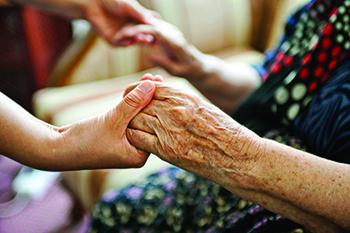
The Hospital Employees' Union (HEU) says improved staffing levels are key to addressing resident-to-resident aggression in long-term care facilities.
The 46,000-member union is responding to a report on the topic released today by B.C.’s Seniors Advocate. In her report, Isobel Mackenzie recommends a review of staffing levels for residents with more complex care needs.
“The Seniors Advocate established earlier this year that four out of five care facilities are not funded to meet the province’s minimum staffing guidelines,” says HEU secretary-business manager Jennifer Whiteside.
“It’s urgent that government move quickly to ensure that all facilities are funded to at least these basic staffing levels.
“We agree with the Advocate that a further review is required to establish what level of staffing is needed to provide safe and dignified care for residents.”
The Advocate also recommended more training for staff who work at these facilities.
“We support senior safety and more staff training,” says Whiteside. “But our members need the time to implement their training. In many facilities, it’s become typical for care aides, who provide the vast amount of direct personal care, to try and meet the needs of their often frail, elderly residents without being given enough time to do their job.”
HEU represents about 20,000 members working in seniors’ care.
A 2014 telephone survey of HEU care aides found that:
- More than half said they didn’t have enough time to meet residents’ needs.
- More than 70 per cent reported they did not have the time to comfort or reassure someone who may be confused, agitated or afraid.
- Nearly three-quarters said they’re forced to rush seniors through basic care routines, including toileting, bathing, grooming and feeding.
HEU contact: Sara Rozell, communications officer, 604-209-3861